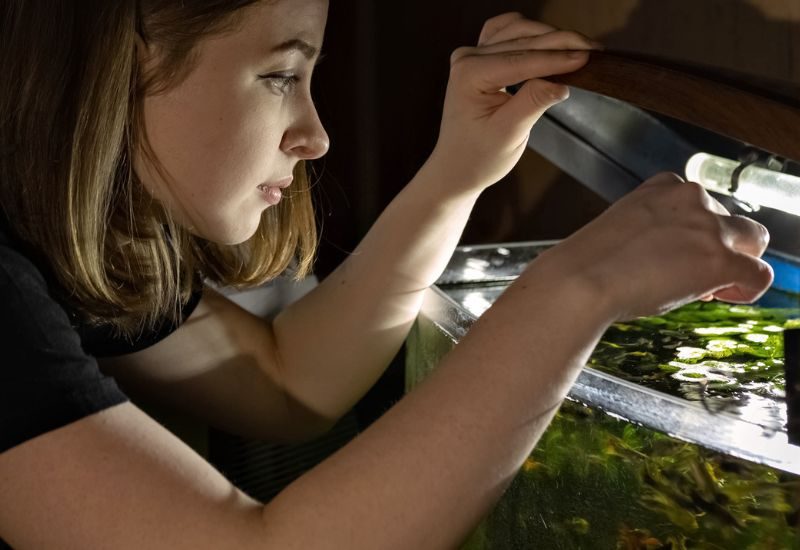Baby fish, also known as fry or fish fry, can be born alive or in groups of tiny eggs that you may mistake for insects or even mold! Either way, these little ones need to be cared for if you want them to grow big and strong. To help you protect and care for fish fry, here’s how to raise healthy baby fish in your aquarium.


Protect the Eggs
Some fish lay eggs, but not all lay eggs the same way. Some fish make nests, like bubble nests, to lay their eggs. Others will bury them, scatter them across the tank, or even raise them in their mouths! However, no matter how they lay their eggs, if you see some eggs unattended, you’ll want to protect them from being gobbled up by their parents or other fish.
Gently scrape the eggs off the surface they’ve been laid onto with a piece of thin plastic, like an old credit card. Place them in a clean plastic container with some of the tank water they were born in. You’ll want to put an air stone in the container so the water has plenty of oxygen.
Separate Newborns
Once the eggs have hatched, they can still easily be eaten by other fish, so you’ll want to keep them separated, but they’ll need more space. You can place them in a breeder box attached to the aquarium, where they’ll be protected and in the same quality of water their parents are in. However, there are times when you should use a breeder tank separate from your main tank, especially if you have many fish or large fish.
Set Up Your Tank
If you decide to use a breeder tank, baby fish are delicate, so there are a few things you need to consider. First, baby fish can easily get sucked up into your filter, so forms of gentle filtration, like sponge filters, are best. Second, baby fish need a lot of food, which means lots of fish waste, so cleaning your tank and the filter often is a must. But these babies are small, so use a turkey baster to remove and replace water as well as suck up dirt and debris.
Feed Throughout the Day
As mentioned, baby fish need a lot of food throughout the day to stay healthy. When they’re still in their eggs, as well as when they’re newly hatched, babies will feed off the yolk. But that yolk runs out quickly, and they’ll need more food. Tiny fish will feed on microscopic foods found in fry powder, while older or larger fish can move on to crushed flakes or live food, like newly hatched brine shrimp. But remember, not every fish eats the same thing, so be sure to ask your local fish seller what foods would suit your fry best.
Now that you know how to raise healthy baby fish in your aquarium, you’re ready to be the best fish parent ever. And if for some reason, you can’t keep all your fish, fish pet stores will often take them off your hands, and some may even pay you for them!

